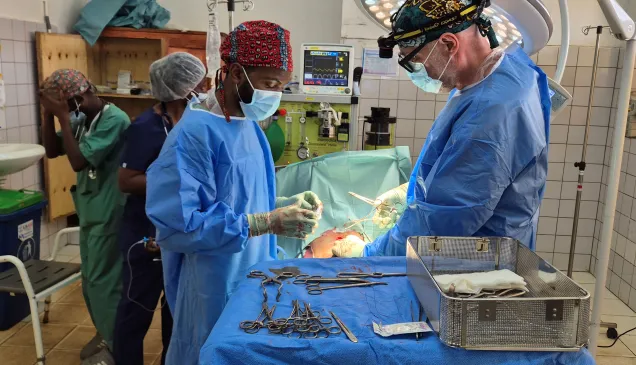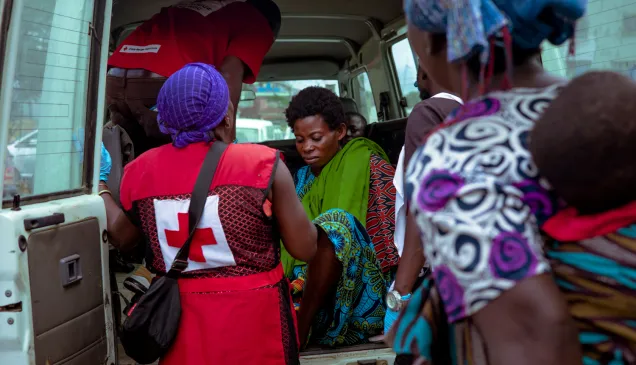Over 3,500 of the people who received this emergency aid had fled clashes in the hills of Busolo, near Luntukulu. They have taken refuge in villages already seriously affected by the conflict.
Democratic Republic of the Congo: Food for survival
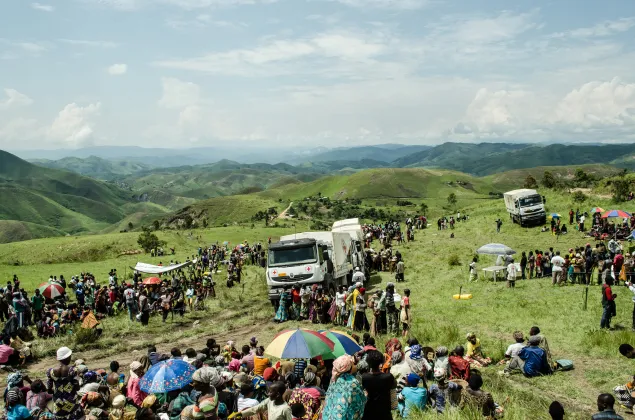
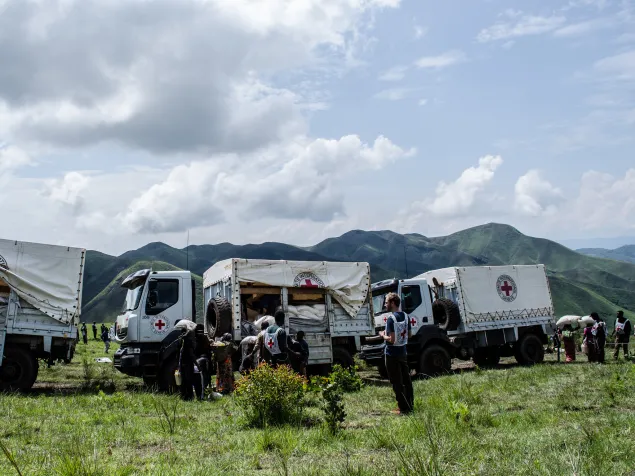
Over 3,500 of the people who received this emergency aid had fled clashes in the hills of Busolo, near Luntukulu. They have taken refuge in villages already seriously affected by the conflict.
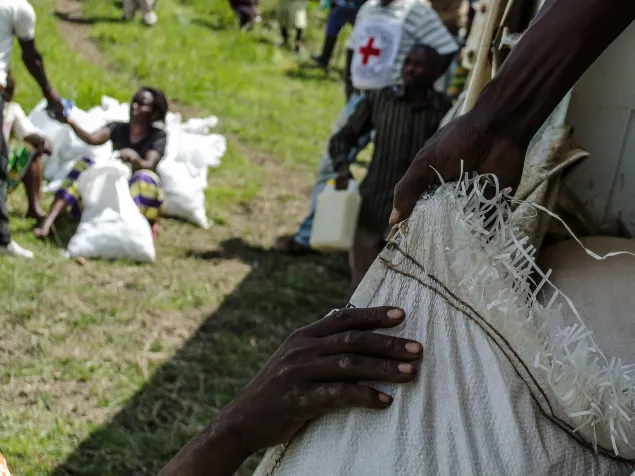
Each family received 30 kilograms of corn flour, 10 kilograms of beans, 5 litres of vegetable oil, and cooking salt, to meet their basic needs.
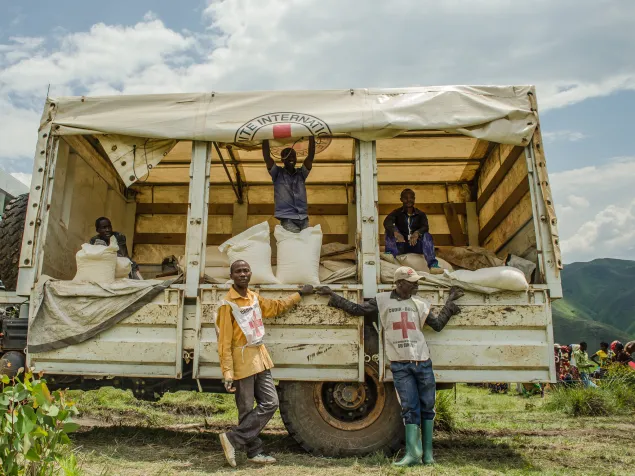
Each family received 30 kilograms of corn flour, 10 kilograms of beans, 5 litres of vegetable oil, and cooking salt, to meet their basic needs.
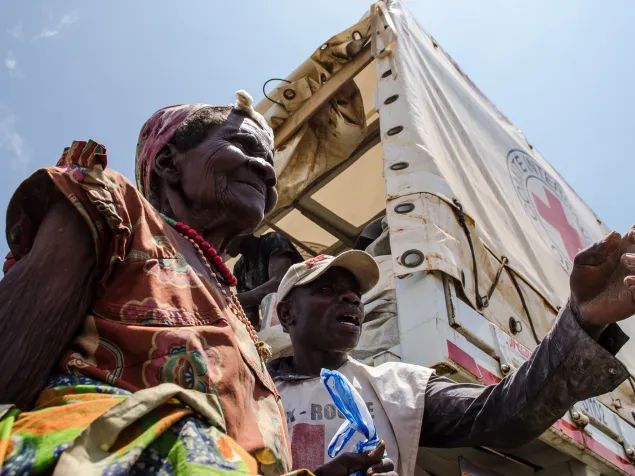
The price of cassava flour – a staple of the Congolese diet – had doubled in a matter of weeks in Luntukulu, the village where most of the displaced people from the Busolo area were staying.
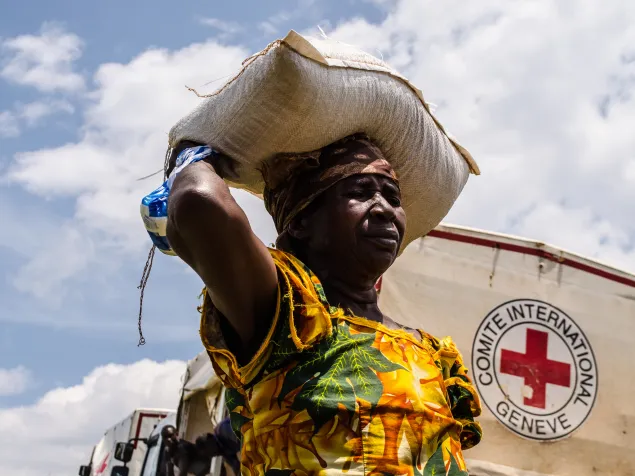
The price of cassava flour – a staple of the Congolese diet – had doubled in a matter of weeks in Luntukulu, the village where most of the displaced people from the Busolo area were staying.
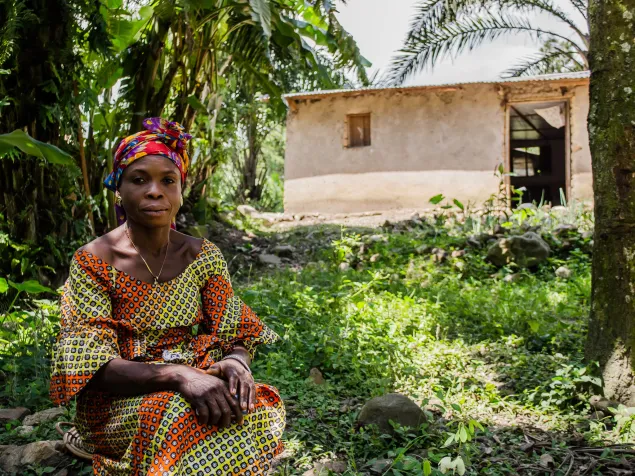
Wabiwa Witakenge is the chief of the village of Ndiba. This energetic woman has eight children, and has accommodated 12 displaced people in her home. Security concerns mean that she has been unable to access her fields, where she grew beans, cassava and maize, since the beginning of October. Agriculture is the main source of income of many households, and being cut off from their fields has led to a shortage of food and a sharp rise in prices in the region.
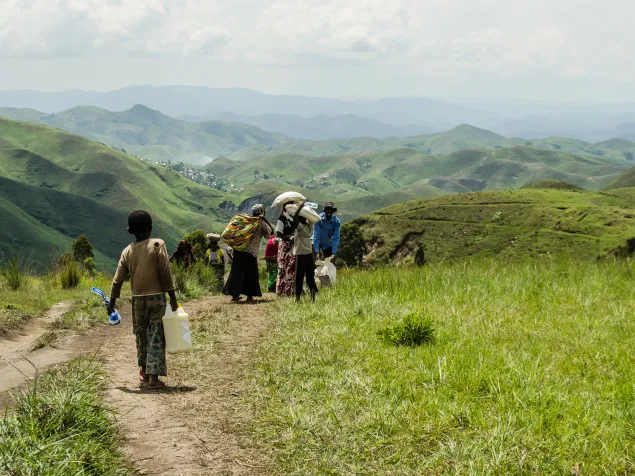
Many families are struggling to get by. To compensate for the loss of income from agriculture, some people take casual work in the region’s open-pit mines. Others transport goods over long distances for local traders. But because resources are tight, children are being taken out of school.
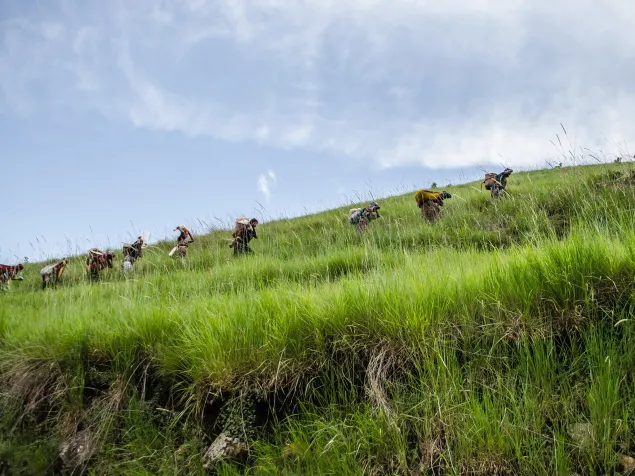
In this region plagued by endless conflict, families fleeing the violence often have to walk for several hours to find shelter in another village. Solidarity is strong between displaced communities and host communities, and they share plots for growing food.
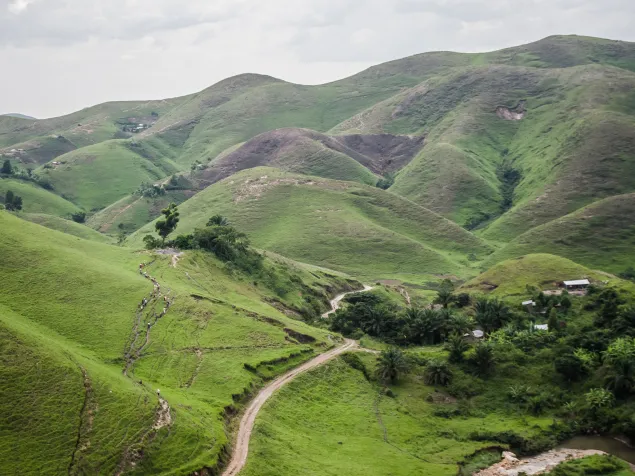
ICRC teams are working tirelessly in South Kivu to protect and help victims of conflict. In 2016, we distributed food to over 40,000 resident and displaced people in this province alone.
Thousands of people are struggling to meet their food requirements in Walungu, in the province of South Kivu, because of relentless fighting between the DRC's armed forces and armed groups. Whole communities are facing serious food shortages because they no longer have access to their fields and crops. In December the ICRC distributed urgently needed food to over 8,500 of these victims of armed conflict in the Luntukulu region.

